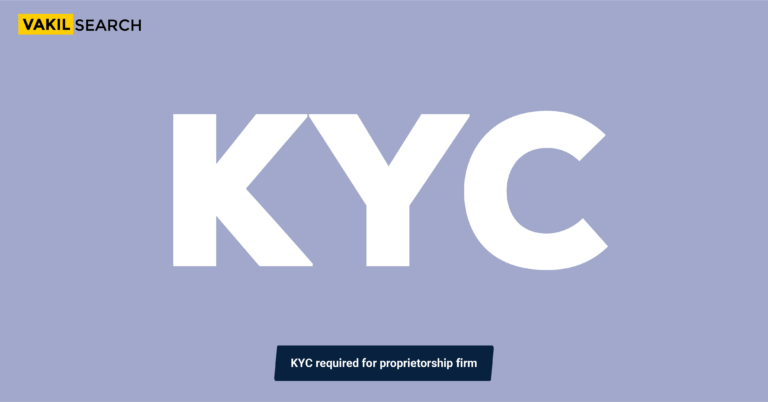Learn how to register a Proprietorship firm without GST in India, advantages, documents required, steps, and compliance requirements. Simplified guide.
A common and simple choice for anyone wishing to launch a business in India is a proprietorship firm. A single person (referred to as the proprietor) owns and operates the business in a proprietorship structure. In contrast to other business designs, the registration process for a proprietorship firm is quite straightforward because the company is not thought of as a different legal entity from the proprietor.We’ll walk you through the steps of creating How Do I Register a Proprietorship Firm Without GST.
Understand Proprietorship Firm Registration
Before we begin discussing the registration process, it is important to clearly understand what a Proprietorship firm is and how it operates. A Proprietorship firm is a type of business structure owned and managed by a single individual, referred to as the proprietor.
Unlike other business structures, a Proprietorship firm does not have a separate legal identity from the proprietor. This means that the proprietor is personally responsible for all the debts and liabilities of the business. However, it also gives the proprietor complete control and decision-making authority over the business.
Advantages of Registering a Proprietorship Firm
There are several advantages to registering a Proprietorship firm, which makes it a popular choice for small businesses in India. Some of the advantages include:
- Ease of registration: Ascertaining the simplicity in the registration process, a Proprietorship firm can be easily registered with minimal documentation and without any complex legal formalities. Compared to other business structures, the registration process can be conducted cheaply.
- Complete control: The firm’s proprietor holds complete dominion over all the business aspects, such as decision-making, operations, and finances. The proprietor can execute the business according to their vision and preferences without external approval, leading to complete control.
- Fewer compliance requirements: Proprietorship firms present fewer compliance requirements as compared to other business structures. For example, Proprietorship firms having a turnover below ₹20 lakhs (as of the financial year 2021-22) are not obligated to register for GST, leading to a reduction in the time and effort required to comply with complex GST regulations.
- Flexibility: The proprietorship firms offer operational flexibility and can be effortlessly modified or dissolved according to the proprietor’s requirements. Th
Documents Required for Registration of Proprietorship Firm
You must gather and submit certain documents to register a Proprietorship firm in India without GST. The exact documents may vary depending on the state or city where you are registering your firm, but generally, the following documents are required:
- PAN (Permanent Account Number) card
- Aadhaar card
- Bank account proof
- Business name proof
- Declaration (You would need to provide a declaration stating that you are the sole proprietor of the business, and that the business is not registered under any other legal entity).
Steps to Register a Proprietorship Firm Without GST
The process of registering a Proprietorship firm without GST in India involves the following steps:
Step 1: Choose a business name – Select a unique name for your Proprietorship firm that is not already registered by another business. You can choose any name as long as it is not infringing on any trademarks or copyrights.
Step 2: Gather required documents – Collect all the necessary documents, as mentioned above, including PAN card, Aadhaar card, bank account proof, and business name proof.
Step 3: Prepare the registration application – Prepare the registration form for your proprietorship business, including the name of the company, the proprietor’s identity, the business address, and any other necessary facts. Depending on the laws in your state or city, you might need to utilise the prescribed format or form.
Step 4: Submit the application – Submit the completed registration application and the necessary paperwork to the appropriate authority. Depending on where your business is located, this can be the neighbourhood Municipal Corporation, Gram Panchayat, or another designated authority.
Step 5: Obtain registration certificate – Upon processing and approval of your application, you will be sent a registration certificate for your proprietorship business. This certificate can be used for a variety of commercial purposes and acts as proof of registration.
Compliance Requirements for Proprietorship Firm
Even though Proprietorship firms have relatively fewer compliance requirements than other business structures, some essential compliance requirements still need to be fulfilled. These include:
- PAN and Aadhaar linkage: It is required for proprietorship firms to link their PAN and Aadhaar cards. This can be done through authorised facilitation centres or online on the website of the Income Tax Department.
- Income tax filings: The owner of the business is in charge of filing both their personal and the business’s income tax filings. This involves submitting the annual income tax return (ITR) and, if necessary, the quarterly advance tax payments.
- Business licenses and permits: Depending on the nature of your firm, the appropriate authorities may require that you get particular licences or permissions.
- Bookkeeping and accounting: Maintaining proper books of accounts and financial records for your Proprietorship firm is essential. This includes maintaining records of all business transactions, expenses, and income.
- Goods and Services Tax (GST): While Proprietorship firms with a turnover of less than ₹20 lakhs (as of the financial year 2021-22) are not required to register for GST, if your turnover exceeds this threshold, you would need to register for GST and comply with the applicable GST laws, including filing regular GST returns and maintaining proper records.
Conclusion
For small enterprises and new firms looking for a simple and affordable business structure, registering a sole proprietorship enterprise without Goods and Services Tax (GST) in India is appropriate. A streamlined registration process, sole ownership and autonomy, operational flexibility, minimal regulatory requirements, tax exemptions, and secrecy are just a few of the many benefits this structure offers.
However, to preserve the business’s smooth operation and prevent any legal encumbrances, it is essential to ensure prompt compliance with relevant legislation and regulations, uphold accurate fiscal records, and fulfil other legal requirements.
Vakilsearch, a leading online legal service provider in India, can assist you with Registering a Proprietorship firm without GST. Our expert team of legal professionals can guide you through the registration process, help you understand the necessary documents, and ensure compliance with applicable laws.
Read more










